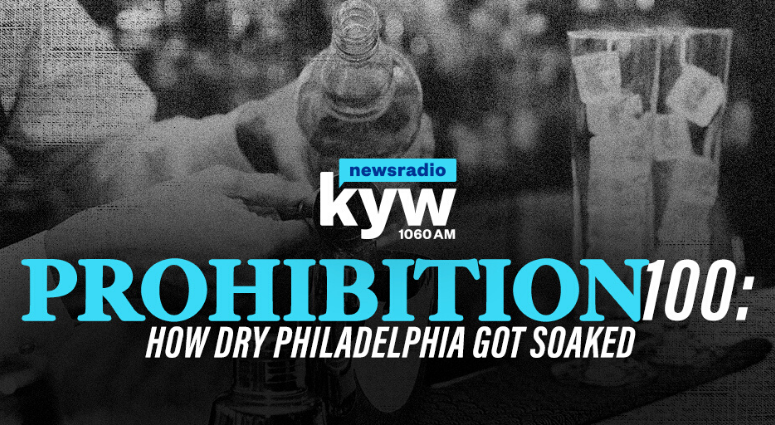
PHILADELPHIA (KYW Newsradio) — Prohibition went into effect in the United States in 1920 and lasted for 13 years. But that didn't stop Philadelphians from sneaking a few sips of spirits whenever — and however — they could.
Established out of a concern for societal morals and health, the 18th Amendment to the U.S. Constitution prohibited the manufacture, sale and transportation of intoxicating liquors. However, it was still legal to consume them.
The efforts of Prohibition's supporters — known as "drys" — obviously failed. Those in favor of drinking — the "wets" — thrived in their underground, back-alley secret societies, fueled by alcohol and ruled by mobsters and corrupt public servants.
In 1933, the 18th Amendment was repealed by the 21st, but the ramifications of Prohibition's fundamental objective live on in Pennsylvania.
KYW Newsradio takes a close look at Prohibition in Philadelphia — 100 years ago and today. We visit the sites of speakeasies that were once hotbeds of illegal activities and uncork secondhand stories from the descendants of bootleggers.
Part 1: Philadelphia leans into an outlaw reputation
When the 18th Amendment was ratified in January 1919, Americans were given one year to prepare for the implementation of Prohibition. When the moment arrived at the stroke of midnight on Jan. 17, 1920, resistance to the new law began immediately in Philadelphia.
"What I learned about Philadelphia was that it rivaled Chicago and New York in terms of the widespread disregard for Prohibition laws," said Annie Anderson, author, historian and manager of research and public programming at Eastern State Penitentiary Historic Site.
In the early days of Prohibition, it was almost as though nothing had changed. Alcohol continued to flow freely in Philly as products poured in from overseas, Canada, Atlantic City and other regions. It was produced locally in stills, basements, bathtubs and factories.
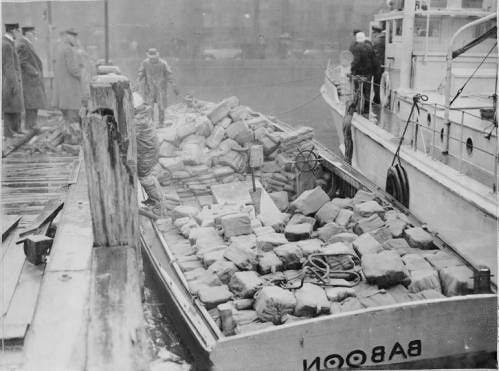
Philadelphia bootlegging operations were led by two powerful men, Max "Boo-Boo" Hoff and Mickey Duffy, said Anderson, author of "Philadelphia Organized Crime in the 1920s and 1930s."
"Max 'Boo-Boo' Hoff was a boxing promoter, and he was known as the 'King of the Bootleggers,' and he had this industrial alcohol business," Anderson said. His industrial alcohol companies basically diverted what was meant for industrial perfumes and products not for consumption into consumable alcohol products, she explained.
Mickey Duffy, better known as "Mr. Big," led the beer side of the racket.
The pair made a fortune, while helping to create a notorious outlaw reputation for the City of Brotherly Love.
By 1924, Prohibition supporters were in desperate need of a hero to clean up the rampant crime and graft. Anderson says they got one in the form of two-time Medal of Honor recipient Brigadier General Smedley Butler.
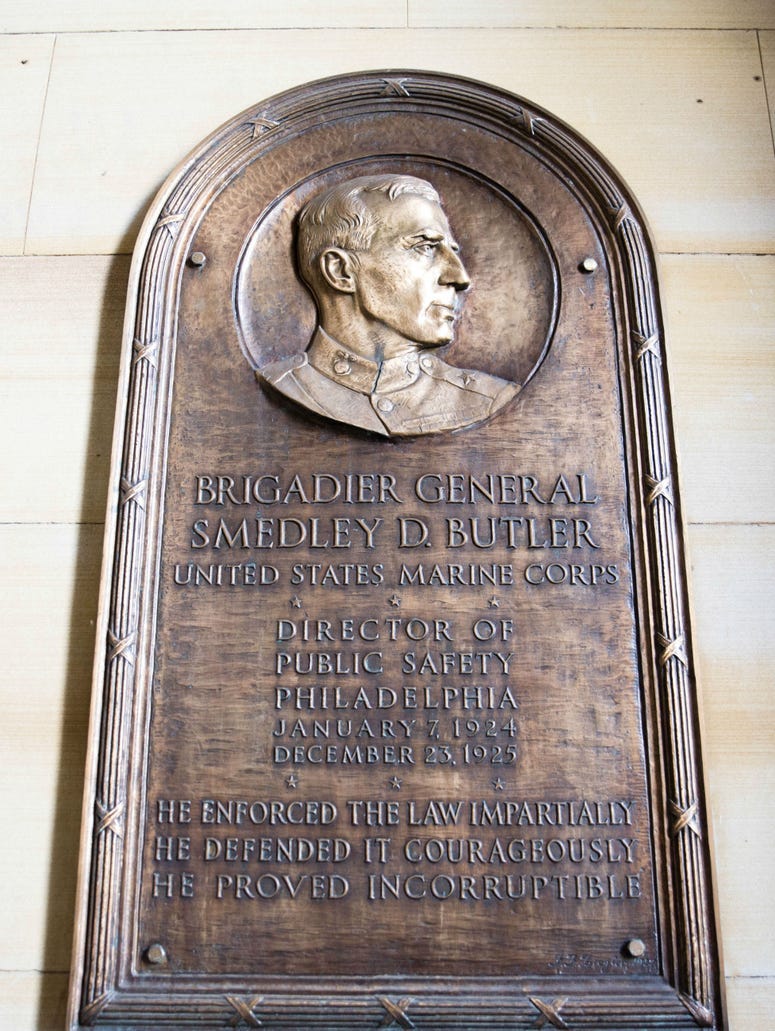
"The mayor of Philadelphia got the president to relieve him of his duties with the Marine Corps and come here and be the public safety director," Anderson said.
A West Chester native and Haverford School graduate, nicknamed "The Fighting Quaker," Butler was to Philadelphia what Elliot Ness was to Chicago.
"He was a politician's nightmare, because, give him an assignment and he's gonna do what he's supposed to do," Anderson said.
Butler applied a military mentality to the police force, using gas grenades, training cops in Army methods of attack, installing a powerful searchlight on top of City Hall to scan city streets for "hoodlums" by night.
And he was very successful. In 1923, the year before Butler was appointed, roughly 220 speakeasies were raided. In his first year in office, police shut down more than 2,500 speakeasies.
Butler established a vice squad, tasked with raiding any place where illicit booze was sold — from fancy hotels on Broad Street to corner store speakeasies. According to vice records, Anderson said, Butler's "pounce policy" was a major shift in Prohibition enforcement.
On the other hand, he made enemies of the crooked cops and politicians who were on the take, and the citizens who wanted to drink. The breaking point came when Butler raided the Ritz Carlton and Bellevue Stratford hotels, the favorite watering holes of Mayor Freeland Kendrick and the elite.
Butler was sent packing at the end of 1925, but on his way out, he left this acerbic bouquet as his parting words: "I have been fighting in a battle where the head of the show was disloyal and everything was crooked. General Sherman was right about war, but he never heard of police in Philadelphia."
Part 2: The clandestine culture of speakeasies
There may have been 16,000 speakeasies in Philadelphia, some with hidden stairs, tunnels and even secret passwords to gain entry.
Comedian Grocho Marx, a big film, radio and stage star during that era, was a speakeasy patron. The story goes, when he and other celebrities — Will Rogers, the Marx Brothers, Ethel Barrymore, John Barrymore — performed at a Center City theater, they would pay a visit to McGillin's Olde Ale House, 1310 Drury St.
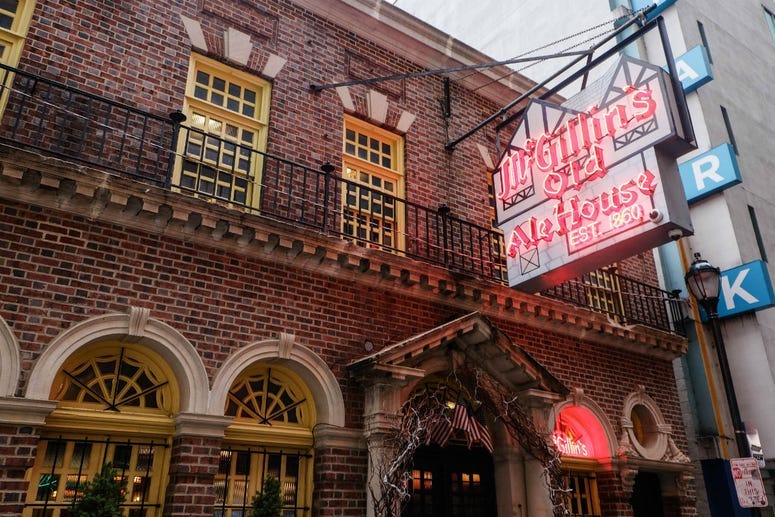
"They would come in through the back door," said present-day co-owner Chris Mullens Sr., where they would be shown to a private room on the second floor.
"I would say it's very probable that people either brought in their own alcohol or had runners who would buy the alcohol and bring it in," he said.
Mullens says boozy beverages were served in tea cups, so anybody who came in would see the genteel folks drinking tea or coffee.
"The rumor was they would come in even during intermission. And they always said the second act was always better than the first. And it was probably because McGillin's had something to do with it," Mullens said.
The Khyber Pass Pub, 56 S. Second Street in Old City, was also once a speakeasy. Like many businesses, it had to get creative to survive.
"During Prohibition, everybody had to shutter the doors or privet and do something different to stay afloat," said Jenny Hobbs, Khyber's director of sales and marketing.
Hobbs says the business survived by turning itself into a cleaning service.
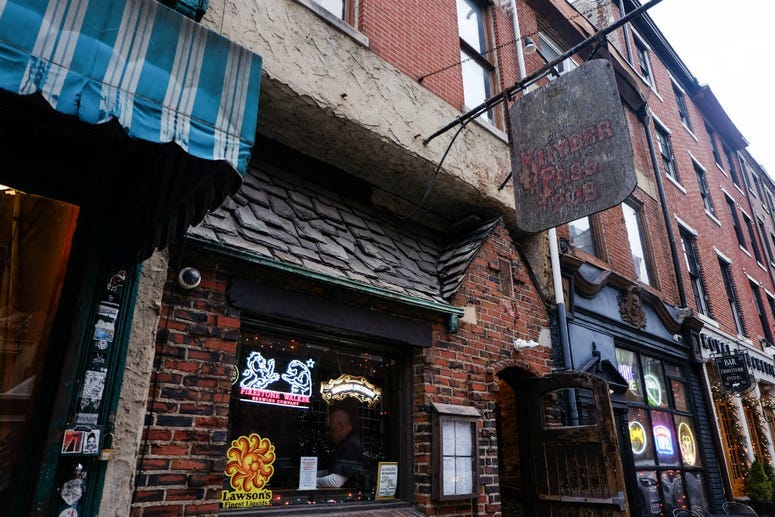
"So they put a sign up out front, covered up the bar sign. I think they probably threw a curtain in the window and built a wall with a side door. How it goes is that there was just a register in that front room. The bar itself stayed put and nothing really changed very much," she said.
"If it was to be raided, I think there is enough space in this building where people could hide or run out the back door."
The building still features the original facade out front with its sloped slate roof, and the hand-carved bar there today is the same one from Prohibition days.
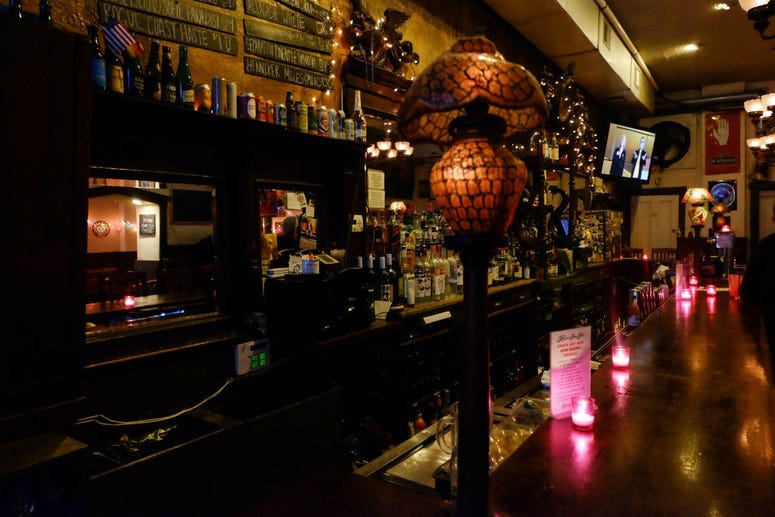
"The bar was made for the World's Fair in 1876. It was made by German woodworkers," Hobbs said.
Eastern State's Anderson says the Khyber's tricks were not unique.
"There were speakeasies just at the local cigar shop or the barber or the candy shop," she said. Philadelphians could find illicit liquor at the corner stores in their neighborhoods.
"I found vice logs that had private residences as hosting speakeasies," she said.
"Oh, there probably had to be some pretty cool escape hatches and tunnels and hidden panels and doors," she said. "And press this book in the bookcase and the wall slides over."
Police raids on establishments like this were frequent, but there was very little impact. The booze continued to flow.
One popular speakeasy, run by "Boo Boo" Hoff, was the 21 Club, in Center City. The castle-like building at 1321 Locust Street stands today.
"And that was just one of Hoff's many speakeasies. And Downtown Philadelphia hosted many speakeasies that had dancing and booze," Anderson said. "And some powerful political figures, like Magistrate Edward Carney, would prosecute bootleggers during the day in his chambers, and then he would patronize clubs at night."
Part 3: Corruption in prison mirrored corruption everywhere
Lawlessness in Philadelphia ran amok during Prohibition, be it from corrupt public servants, organized crime or everyday citizens. The risk of getting caught was worth the risk to those involved.
"A lot of speakeasy owners just saw Prohibition fines as the cost of doing business," Anderson said.
She says most violators received a fine. And if there was a jail penalty, it was a couple of weeks or so in county jail.
"However there were major bootleggers who served time at Eastern State," she said.
Take, for example, Mickey Duffy, Philadelphia's "Baron of Beer," who was taken in for assault with intent to kill, and the famous bootlegger of Chicago, Al "Scarface" Capone, who was sentenced for carrying a concealed deadly weapon.
"(Capone) was stopping in Philadelphia on his way home from a conference of gangsters in Atlantic City," Anderson said. "He hopped off the train with his bodyguard, caught a movie on 19th and Market streets, was recognized by a Philadelphia cop and arrested, charged, sentenced and incarcerated within 24 hours."
He spent seven months at Eastern State.
"He was in what was known as 'Ritz Row,'" Anderson said. "It was a set of cells set aside that was a little more posh."
Mobsters were celebrities of the time, and Capone's cell — a historical attraction at the penitentiary today — was a luxury suite compared to other cells.
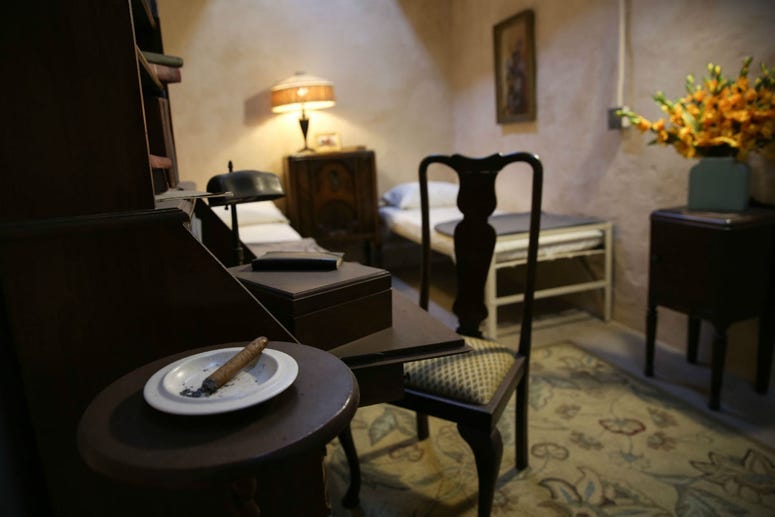
"He had really fine furniture and decorative rugs and paintings. If we look at the records, we see that he had a private visitation from "Boo Boo" Hoff and other boxing promoters in Philadelphia. So, he had lush surroundings and he had some privilege, probably because he was famous at that point and he did have money."
The corruption of Prohibition behind the walls mirrored what was going on outside the walls. In the 1920s, a group of four inmates, nicknamed "The Four Horsemen of the Apocalypse," almost took control of the entire prison.
"They were appointed to represent the whole prisoner population, to bring grievances," Anderson said. "They gained a lot of power and control. … They kicked one of the prison officials out of his office and locked the door from the inside, and they kind of ran their headquarters out of this office."
From there, Anderson says, they oversaw the distribution of booze smuggled into the prison and the liquor made in inmates' cells.
"They would take fruit and yeast from the prison kitchen and create this illegal hooch that they would sell and distribute to other prisoners," Anderson said.
A 1923 grand jury investigation uncovered a unique carnival of lawlessness, according to Eastern State Penitentiary records. A widespread network of narcotics sales, bootlegged liquor production and prostitution was discovered.
Part 4: The sure and steady death of Philly's beer industry
Prohibition virtually wiped out Philadelphia's vibrant brewing industry. But some brewers found ways to survive — though not always in accordance with the law.
Up until 1920, Philadelphia was one of the country's major beer-making centers, home to at least 40 breweries. After Prohibition arrived, most breweries closed their doors.
Author and historian Rich Wagner says the economic impact was staggering — for the industry and for its suppliers.
"Beer is made from agricultural products, barley and hops. There's a tremendous amount of transport involved with railroads and so forth. They have to have labels printed. They have to have glue to stick those labels on those bottles. They need bottles. They need kegs. They need all this equipment."
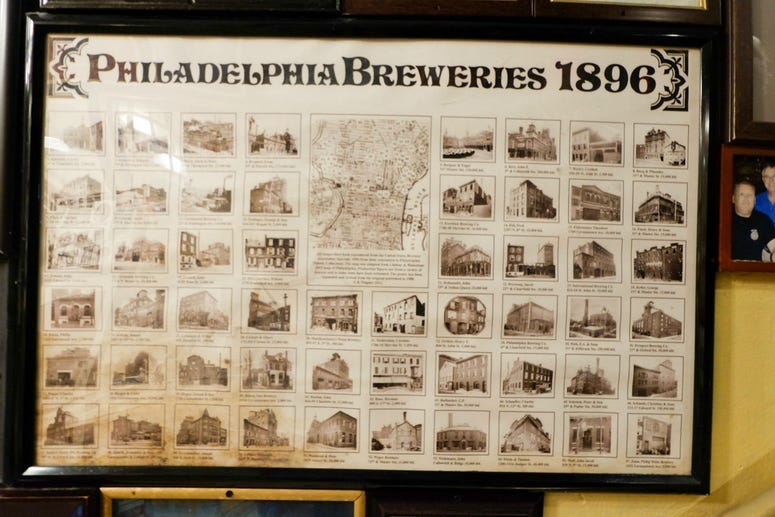
Some brewers tried to survive by switching to other production methods.
"You could make 'near beer,'" said Wagner. But, at 0.5% alcohol, there wasn't much of a demand for it. "You could just make soda. You could rent all this vast refrigerated space you had for cold storage, for people with fur coats and food products. They could make and sell yeast."
A lot of breweries went into the malt extract business, presumably for baking purposes, he said.
But some brewers simply refused to stop. Wagner says they took their operations underground — literally at times.
"There were always these beer hoses in the sewer to take the beer a couple blocks away where they could fill the kegs in a garage somewhere, not near the brewery," Wagner said.
One gang in Easton actually ran beer through a hose under the Delaware River to a warehouse in Philippsburg, New Jersey.
Brewing was a risky business that involved a lot of subterfuge and sleight-of-hand to avoid getting busted.
"If they knew they were getting raided, they'd send a truck out with barrels full of water. And the agents would follow those trucks. And after the agents left then they'd leave with the beer shipment," Wagner said.
Part 5: Illicit family histories
The Seaview was one of more than 20 Atlantic City-area locations raided by authorities. Tidwell says the hotel is riddled with escape routes.
The bootleggers who flouted Prohibition are all long dead, but the colorful stories of the roaring '20s and early '30s still told today among their descendants are alive and well, and just as vibrant.
The Seaview Hotel, near Atlantic City — a town with its own reputation for resistance to Prohibition — was an exclusive retreat.
"One would carry his clubs. The other would carry a machine gun," said Mike Tidwell, the hotel's present-day director of sales and marketing.
As the story goes, the original owner of the hotel had a deep-seated fear of Capone, and when he went out on the golf course, he brought two caddies.
"Where the locker rooms used to be, there was a trap door that the bar could disappear into at a moments notice," he said.
"In our basement which is an interesting catacomb of connecting creepy hallways, you can see the proof of these trap doors and various escape routes," he added. "So, that is kind of one way we have been able to add some truth to these stories."
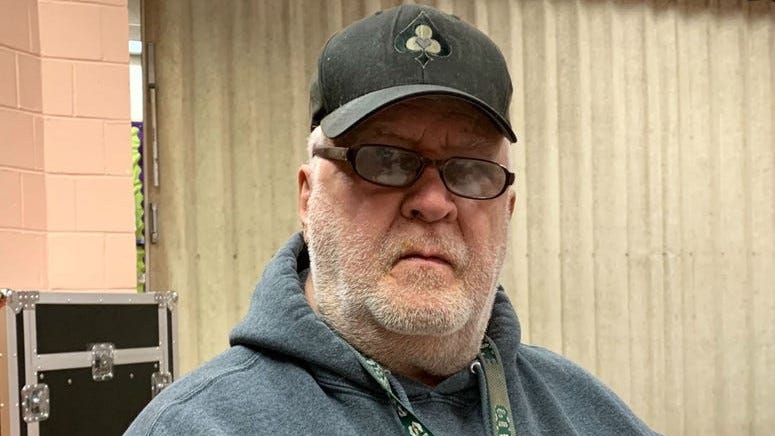
Anthony Molineri of South Philadelphia says his grandfather was a bootlegger, a classic bathtub gin guy.
Molineri said his grandfather would make his own hooch in his South Philadelphia home and sell it on the side at his business in Center City, in the basement across Walnut Street from the Forrest Theater.
"It was a hat cleaning and boot black. If you needed your shoes shined, he did that. And if you needed the liquor, he sold you a bottle," Molineri said.
"Any businessmen in there automatically knew what was going on. He was there for about 40 years. He made a ton of money."
Molineri says he doesn't drink and, in his opinion, alcohol is worse than drugs. But, he said, alcohol sales raised a family and put two of his uncles through college.

Rita Monzo, 92, of South Philadelphia, has stories of her family's illegal wine operation. As a child, she remembers, she and her siblings would make the wine with her parents in the basement of their row home.
She described the process of juicing the grapes.
"They used to put the pole in the barrel, and then we used to have to get the pole and walk with it and we would turn the press."
Her father would then sell the wine.
Many Italian families in South Philadelphia had a wine-making setup in their homes. Wine was part of their culture, and they never stopped making their own, even when Prohibition hit.
The 21st Amendment, which repealed Prohibition, was ratified in 1933, but bootlegging didn't end there. A man named Tony, also from South Philadelphia, who didn't want to give his last name said his father made grain alcohol in the '50s and sold it on the black market to bar operators.
He said his father had one still in New Jersey and one in his South Philadelphia basement.
"He was turning over 5 gallon cans of alcohol every day," Tony said.
"After he would make the alcohol, he would send me across the street to the grocery store to buy food coloring."
Prohibition lives on
The dry era's impact is still being felt today.
Anyone who has ever grumbled about Pennsylvania's regulations on alcohol can blame the politicians who were running the show when the 21st Amendment was passed.
When the Great Depression hit, the federal government needed new revenue streams, so Congress decided to make alcohol legal again so it could be taxed, said Sarah Winski, senior manager of exhibition development at the National Constitution Center.
The amendment placed enforcement of alcohol regulation in the hands of the states. Pennsylvania, with a conservative governor at the time, chose a state-run system over a model that issued licenses to private businesses.
The amendment placed enforcement of alcohol regulation in the hands of the states. Pennsylvania, with a conservative governor at the time, chose a state-run system over a model that issued licenses to private businesses.
"And that's where really all the laws that we've known since come from: Sunday blue laws; closing time; you can't buy alcohol on Election Day," Winski said.
The patchwork of laws that exist across the country, differing from state to state is really a product of ending Prohibition.
Speakeasies are trending again, 100 years later.
Tim McAleer owns a Philadelphia sightseeing company, and he is putting together a trolley tour of some hot spots that he's going to call the Urban Bourbon Tour.
"You get on the trolley, you can bring some alcohol with you, and then along the way we're gonna stop at different places to do bourbon tastings" he said.
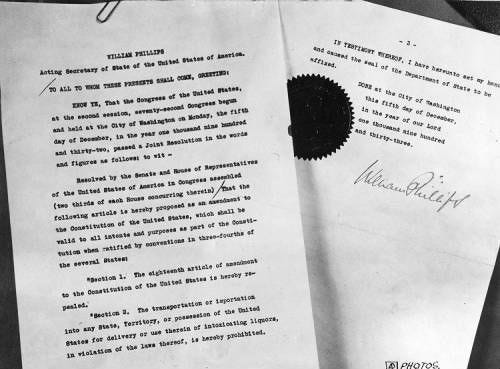
Stops will include what was once the Benjamin Franklin Hotel at Ninth and Chestnut, the old 21 Club, and the Franklin Mortgage and Investment Company, named after the place that "Boo Boo" Hoff used to launder his bootleg money.
Franklin Mortgage is a small, intimate space located in the basement of a building tucked away on 18th Street between Chestnut and Sansom streets.
"This bar seats about 45 people. And I guess one ground rule that we have is we don't do standing room. So, once all the tables are full and seats at the bar are full, we'll just hold the line. And I think that just preserves that ambience and intimacy here," head bartender Ian Adomchick said.
"It's something different. Not your usual bar that you go to for a beer and a shot and watch sports. This is somewhere you come and sit and enjoy a nice cocktail, have a good conversation, and have that sense of intimacy and being away from the world."
Many bars are offering modern takes on Prohibition classics. Harry Jamison shakes them up at Townsend, 2121 Walnut Street.
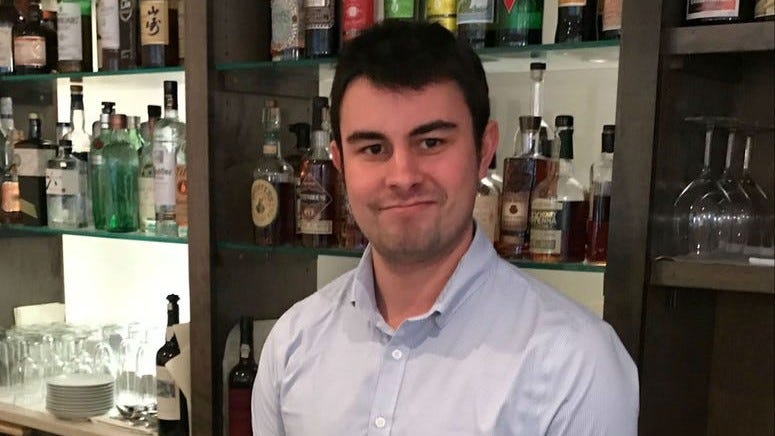
"If you go into a bar and order an old fashioned, it's usually like bourbon or rye," Jamison said. "But you can also make one with any spirit, if you want. You can do it with rum. You can do it with brandy. You can even do it with gin or tequila, and it still works. Spirits are much cleaner now than they would have been back then. There's a lot more sophisticated technology that goes into making a lot of the spirits now, so we can now just let the ingredients shine on their own."
Prohibition's repeal brought the return of breweries to Philadelphia, but only 20 reopened, and they spent the next five decades fighting for survival.
"Many of these will last about a year," beer historian Rich Wagner said. "Many of these, they get the license, but they never get the money that they need to do whatever they have to do."
From 1933 to 1987, Wagner says they fell like dominos. "And then, 1960, Gretz goes out of business; 1965, Esslinger goes out of business; 1981, Ortlieb's goes out of business. Finally, 1987, last gasp: Schmidt's. And for the first time since 1685, there's not a brewery in Philadelphia."
But just one year later came a second rebirth when the first craft beer operation opened in Center City with the Samuel Adams Brew Pub on the 1500 block of Sansom Street.
"I liken it to that tree that got cut down," Wagner said. "Those roots are still alive, and the little spring buds come up and now we have this proliferation of new kinds of breweries and a very active brewing center, and I never saw that coming."
Prohibition is still with us, with opening and closing hours, remnants of Sunday Blue laws, state control of liquor sales. The laws passed in the '30s didn't change much over the decades. Pennsylvania is just now seeing changes allowing purchase of beer and wine in supermarkets.
While Philadelphians never accepted prohibition, some regions of the country did and still embrace it. In Kentucky, Arkansas, Alabama and Texas, dozens of counties and municipalities remain dry.
Reporting by KYW Newsradio's John McDevitt and Paul Kurtz. Photos, videos and archived materials by Holli Stephens. Edited for web by Eric Walter.
